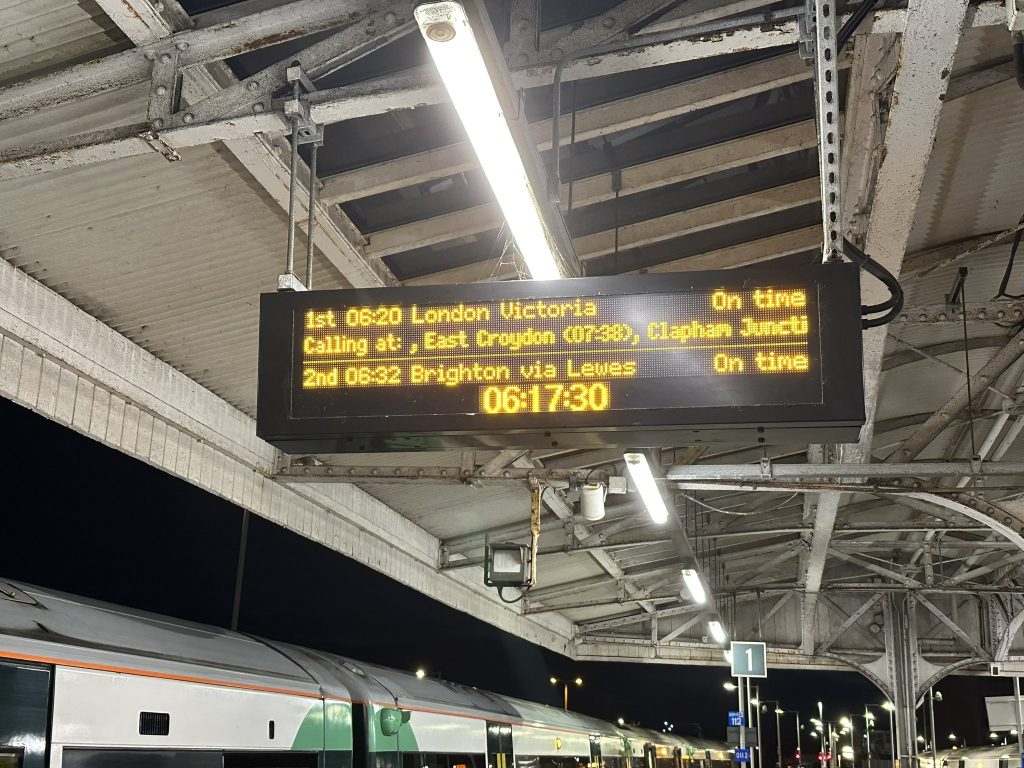Today, the Transport Secretary Mark Harper announced a policy reversal – scrapping widely criticised plans to close hundreds of rail ticket offices in England.
As digital inclusion experts, we’re glad to hear these closures will no longer be going ahead.
Over 10 million people in the UK currently lack ‘foundation-level’ digital skills (Lloyds UK Consumer Digital Index, 2022). 13% of people are unable to set up an online account or make online payments – both of which are needed to buy train tickets in advance via an app.
Digital exclusion largely affects those who face other exclusions and challenges already – such as social isolation, being on low incomes, disability, having English as a second language, long-term health conditions; so leaving them without the confidence to use public transport to make journeys would have a devastating impact on their wellbeing.
It’s important to counter the notion that people are able to learn digital skills by just attending a few classes, or that getting online is affordable for everyone. Building skills and confidence takes time, while the cost is a significant outgoing for many – read our previous blog post on the cost of staying connected.
Without face-to-face interactions at ticket offices, people who are digitally exlcuded risk being left behind and find it significantly harder to travel.
Ticket machines often are out of service, on some routes don’t offer all types of tickets or railcards, and aren’t all positioned suitably for people in wheelchairs. As of 2019, only just over half of stations had an accessible ticket machine installed (House of Commons). Staff at ticket offices are knowledgeable about the routes, discounts, can help arrange assistance for passengers, and provide the human touch that an app can’t.
Buying tickets via an app requires:
- Access to a modern smartphone capable of installing apps and making payments
- A mobile data contract – many stations do not have WiFi
- The confidence to safely and properly use a ticket app
It is a mistake to assume that everyone – particularly the most vulnerable (who may rely on public transport the most) – has all three of the above.
We’re working in East Sussex to help get people online – providing free drop-in sessions throughout the county to boost digital skills, as well as donating SIM cards and devices where we can; but not everyone throughout the country will be able to access such help.
It’s also important to remember that technology doesn’t work all every time. Someone who is digitally savvy may still run in to problems with poorly designed apps that randomly crash. They’re likely to know to try restarting their phone, clearing their cache, or re-installing the app – but many won’t, and will get stuck.
While the policy for train stations has now been reversed, other key services must also remember their digitally excluded customers when moving tickets to digital platforms. Online-only savings on tickets, for example, would be extraordinarily useful to people on low incomes; the same group who are 4x more likely to be digitally excluded.
At a national level, the original decision to close ticket offices reflects a lack of true understanding about the impact of exclusion. The Government have not released a Digital Inclusion Strategy since 2014, and as cost of living pressures continue, greater numbers will be excluded – actions that consider everyone are greatly needed.
We’re always more than happy to advise decision-makers on digital exclusion from our vast experience helping people use such apps face-to-face.

